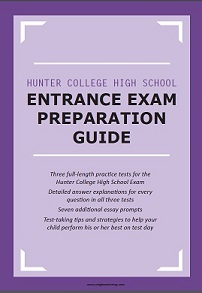What’s the Point of the PSAT?
/Students who are sophomores or juniors in high school have probably heard of the PSAT (Preliminary Scholastic Aptitude Test). Many students preparing to apply to college take the SAT in their junior or senior year, and the PSAT gives students a chance to practice skills needed for the SAT. However, the PSAT does not count for grades in school and colleges do not see PSAT scores, so some students may wonder why they need to take the PSAT at all.
Even though it might not seem like an important test, the PSAT plays two crucial roles. First of all, the PSAT is the best way to get a sense of what taking the SAT will be like: the PSAT tests the same concepts and uses a format similar to that of the SAT, so the PSAT scores that students get will reflect how they would have done on the actual SAT. Secondly, the PSAT is the first screening process in determining which high school students will be National Merit Scholars. Students who become National Merit finalists receive a college scholarship of a few thousand dollars, which can help students pay for tuition and other college expenses.
The Format of the PSAT
The PSAT is a shorter form of the SAT—the real SAT takes more than three hours, but the PSAT is only a two hour exam. Even though it is shorter, the PSAT still covers all of the academic areas that the SAT tests students on, with one big exception. The SAT requires students to write an essay in response to a prompt, but the PSAT does not require an essay; instead, the PSAT has a half-hour multiple choice writing section.
Students taking the PSAT should also be prepared for two multiple choice math sections, which will test general mathematical knowledge of concepts, as well as the ability to think critically. Students should be confident in working with algebra problems, especially setting up equations for word problems, and students should also be comfortable with key facts from geometry. More importantly, the PSAT will require students to read questions with lots of data and information, and then decide what the best way to solve the problem is. Exposure to many different kinds of math problems will help students be prepared for the variety of questions seen on the PSAT.
The PSAT also has two sections of critical reading problems, which will require students to read short and long passages, and then answer questions about the passages. The questions will vary in complexity, so it will be important for students to be able to extract key information from texts, and then use that information to select the right answer choices. Another crucial skill is developing a strong vocabulary, as the PSAT will test students’ knowledge of the meaning of words and will require students to choose the words that fit best into sentences.
For students who struggle with math or analyzing passages, or students who just want to brush up on a few topics, it might make sense to consider PSAT tutoring before the test. Since the PSAT tests skills that students need to master before the SAT, any test prep students do before the PSAT will pay off once it’s time to take the SAT. Click here for a description of what to expect in a tutoring session.
PSAT Results and the National Merit Scholarship Program
A few months after taking the PSAT, every student will receive a PSAT score out of 240. While PSAT scores won’t be reported on college applications or graded by high schools, the results of the PSAT actually do matter. The top 3% of US high school juniors will become National Merit finalists based on their PSAT results. The added bonus of being a National Merit scholar is that students can designate this status on college applications, and in most cases, colleges will receive the list of each year’s finalists. That’s a good way to make one’s college application more impressive! Even though scores won’t be reported to colleges, excelling on the PSAT is a great way to start standing out from the crowd, so it’s never too early to begin preparing.
Should You Hire a Private Tutor to Help Your Child Prep for the PSAT?
Standardised tests are high-stakes, and you probably have questions about how to best help your child prepare for the PSAT. You may have asked yourself whether your child would benefit from a private test prep tutor. Origins Tutoring, a NYC-based test prep and tutoring company specializing in customized, one-to-one test prep tutoring, can help address these concerns, and guide and support your family through the sometimes stressful standardised test preparation process. Our approach is simple: each student will receive the undivided attention and the expertise of a dedicated, experienced tutor who places a premium on delivering the highest quality test preparation tutoring in the most effective and time-efficient manner possible.
If you think we could help your child achieve his or her personal best on the PSAT, please call 917.287.7927 for a complimentary consultation now.

